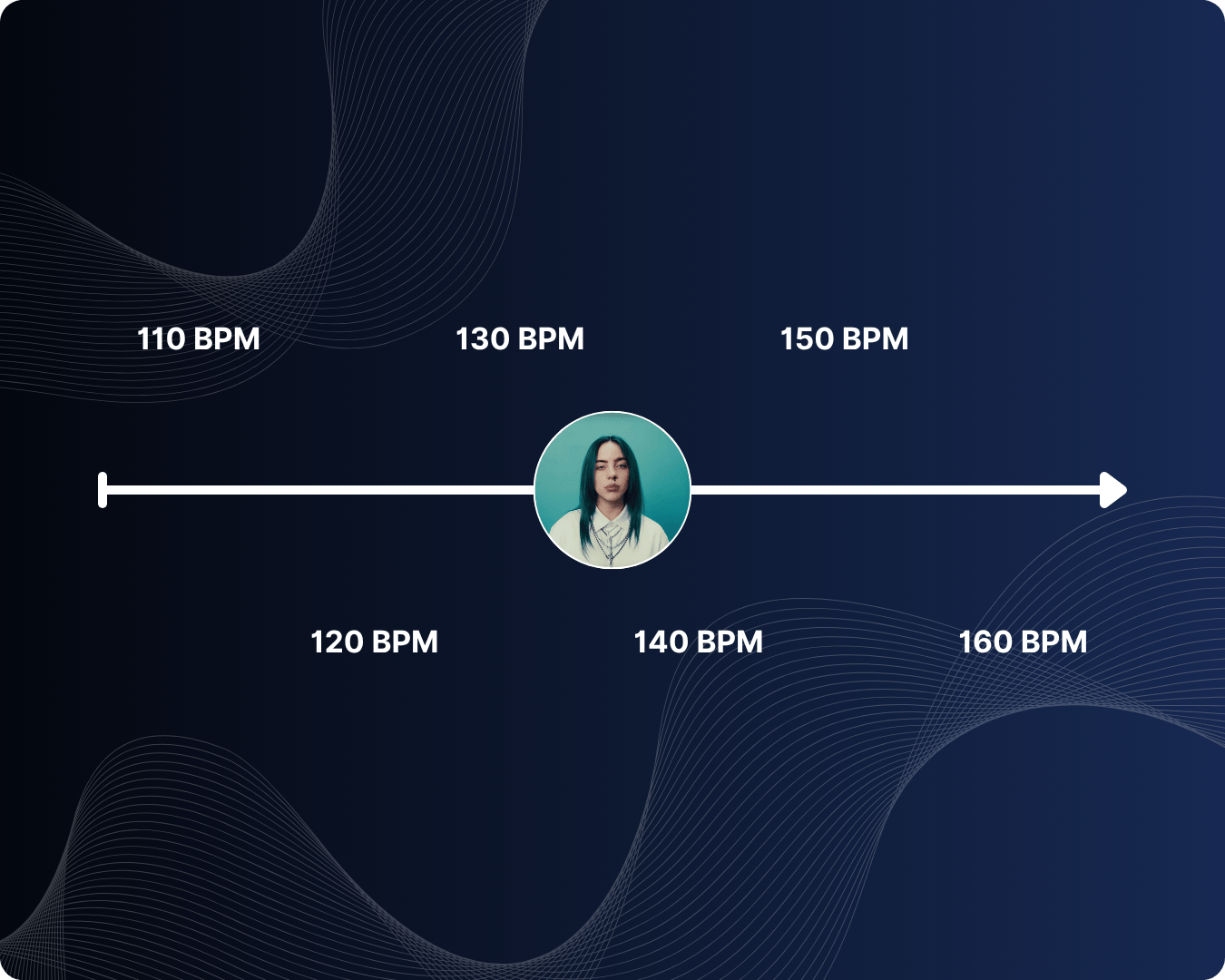Complete metadata for the global music ecosystem
Use our API to access structured and verified metadata for every entity — from songs and albums to festivals and venues. The Soundcharts Metadata API helps automate catalog enrichment, detect missing data, and keep internal databases consistent across platforms and identifiers (ISRC, UPC, UUID, and more).
Get detailed song metadata
Retrieve standardized metadata for any track, including title, artist, ISRC, duration, release date, label, distributor, and copyright information. This endpoint also provides genre classification, contributor roles (composers, producers), and complete audio features such as tempo, key, energy, valence, danceability, and acousticness — ideal for catalog management and analytical applications.
Get song audio features
Access audio features, turning millions of raw tracks into actionable insights. Analyze song BPM, key, time signature, danceability, and other audio-related data and metadata. This information is accessible through the same endpoint of the song metadata, centralizing your API infrastructure.
Access artist metadata
Retrieve standardized artist metadata, including name, country, genres, ISNI, IPI, and identifiers across platforms. This endpoint also provides details such as biography, gender, career stage, and city to support accurate artist profiles and cross-platform matching.
Retrieve album metadata
Access standardized album metadata including title, artist, UPC, release date, total tracks, labels, distributor, and copyright information. Use this data to connect albums with corresponding artists and releases, enrich catalogs, and maintain accurate release records across your systems.
Get playlist metadata
Retrieve playlist metadata including name, platform, type (editorial, user, algorithmic), country, track count, subscriber or view count, and refresh frequency. Access metadata across major DSPs like Spotify, Apple Music, Deezer, YouTube, Amazon Music, and more to monitor playlist availability, coverage, and reach by market.
Access venue metadata
Retrieve detailed metadata for music venues, including name, city, country, region, address, postal code, geographic coordinates, capacity, type, and website. Use this data to map live performance locations, connect venues to festivals or artists, and enrich internal systems with precise, location-based venue information.
Access festival metadata
Retrieve detailed metadata for music festivals, including name, city, country, region, venue, address, capacity, website, and geographic coordinates. Use this data to locate festivals worldwide, enrich live event databases, and connect festivals with their hosting venues.
Structure your metadata now!
Integrate clean, reliable metadata into your applications to ensure consistency across internal tools, dashboards, and business intelligence pipelines.
Common questions about music metadata
What is metadata?
Music metadata refers to the information that describes a recording — including its title, artist, release date, contributors, ISRC, and much more. It’s the data that allows streaming platforms, rights organizations, and music companies to identify, organize, and track songs accurately.
What is the purpose of metadata?
Metadata ensures that songs are correctly identified, credited, and monetized across platforms. It supports everything from playlist placements and search results to royalty collection and catalog management. Without it, artists risk losing visibility and revenue.
Where can I find music metadata?
Metadata is embedded in audio files and distributed through digital platforms, PROs, and metadata databases. With the Soundcharts API, developers can access standardized metadata directly from global sources — including songs, albums, artists, playlists, and live events.
What type of metadata does Soundcharts provide?
Soundcharts provides descriptive, ownership, and analytical metadata. That includes song details (title, ISRC, language, audio features), artist identifiers (ISNI, IPI), release information (UPC, distributor), and event data (festivals and venues).
Start integrating metadata at scale!
Integrate clean, reliable metadata into your applications to ensure consistency across internal tools, dashboards, and business intelligence pipelines.
















